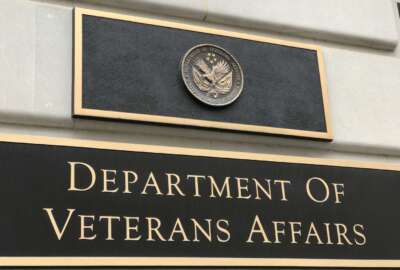- Another big setback for federal employees who argue they are entitled to legal damages after they have worked without pay during government shutdowns. On Friday, the Court of Appeals for the Federal Circuit said it would not reconsider an earlier decision that found the government does not need to pay liquidated damages to those workers. The employees and their unions argue the government should be held to the same standard as any other employer, which would mean double back pay for the paychecks they missed during the last two government shutdowns. Their last recourse for that argument is the U.S. Supreme Court.
- Vendors get a second look at GSA's next major governmentwide contract for services. The General Services Administration released version 2 of the draft request for proposals for the OASIS+ vehicle, incorporating suggestions from contractors. GSA said it made 10 major changes after receiving feedback on the first draft in November. The updates to version 2 include subcontracting plan goals and requirements, clarifying teaming arrangements as related to evaluation and performance, and redefining the scope of the contact. One decision yet to be made is what GSA will charge agencies to use the contract. That will be made before the final RFP comes out. Responses to the draft RFP are due by March 29.
- Reports of sexual harassment hit a new high at the military's service academies in the 2021-2022 academic year. In a new report released Friday, the Defense Department found that overall, nearly 4,000 students reported some form of sexual harassment. The estimated rates of these incidents increased from 50% to 63% for academy women and 16% to 20% for academy men since the 2018 survey. Estimates show women at the Naval and Air Force Academies experiencing the highest rates of unwanted sexual contact. The biggest increases in unwanted sexual contact since 2018 for men, were at the Naval and Air Force Academies, as well.
- Federal employees may soon see some new features when submitting a retirement claim. A new retirement services pilot program is coming later this year from the Office of Personnel Management. The modernization effort will include an annuity calculator and other features to try to help feds more quickly get claims processed. The plans come after years of delays, with it often taking months for OPM to process requests. The House Oversight and Accountability Committee pressed OPM Director Kiran Ahuja on the retirement issues. She said it is not going to be an easy road. "We have not had the investments around staffing and also doing the modernization efforts that we're now doing, that's going to take time," Ahuja said.
- The Biden administration is looking to staff up the Department of Veterans Affairs, as part of its fiscal 2024 budget request. The VA is looking to expand its workforce to more than 453,000 employees, a more than 4.5% increase from current staffing levels. But the VA is already taking advantage of workforce incentives in the PACT Act, which is expanding health care and benefits to veterans exposed to toxic burn pits. The number of Veterans Health Administration staff receiving recruitment, retention and relocation incentives have more than doubled this year, compared to last year. About 12% of VHA staff are getting some kind of incentive.
- Federal contractors are receiving more time to continue to adjust prices because of inflation. The General Services Administration is extending its already relaxed policies around the Economic Price Adjustment (EPA) through September 30. This is the second extension of the changes to the EPA clause since 2022. GSA's memo from September had set a date of March 31 for these inflation-related measures to sunset. Under the relaxed Economic Price Adjustment clause, GSA contracting officers can more easily adjust prices at a vendor's request. The inflation-related changes only apply to GSA-managed contracts, likes schedules and governmentwide vehicles.
- Enrollees in the Federal Employees Health Benefits Program (FEHB) can get more coverage for fertility-related health care starting next year. The Office of Personnel Management is requiring federal health insurers to cover more of the costs for some of the most common types of infertility treatments. But there are some gaps in the coverage that could lead to high out-of-pocket expenses for enrollees seeking this type of treatment, so OPM suggests FEHB carriers consider offering benefits beyond the basic requirements. OPM is expected to complete all FEHB negotiations with carriers by July 31.
- A bipartisan bill would give service members transitioning out of active military service a pathway to becoming Border Patrol agents. The Veterans Border Patrol Training Act would connect new veterans with jobs at Customs and Border Protection. The legislation would build on the Defense Department’s SkillBridge program, which allows service members to participate in approved job training, internships and apprenticeships for up to 180 days before transitioning out of the armed forces.
- The Marine Corps has a new three-year pilot program to develop its own software. The Marine Corps Software Factory will train Marines and civilians to learn how to develop software at the edges of the battlefield without connectivity or assistance from centralized or contracted support. The three-year program will consist of three phases: a technical accelerator, one-to-one training and then actual software development projects. For the first year, the Marines will focus on training, then they'll spend two years building software solutions while continuing to advance their skillsets.
Copyright
© 2025 Federal News Network. All rights reserved. This website is not intended for users located within the European Economic Area.




